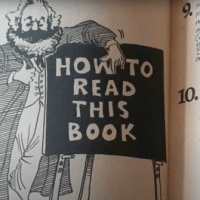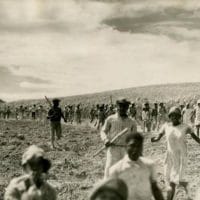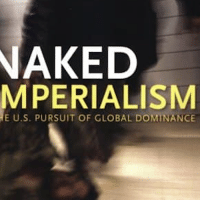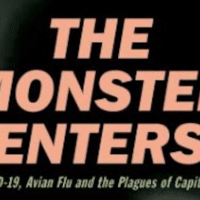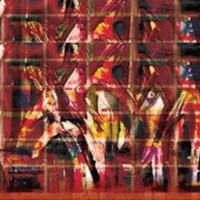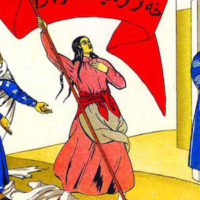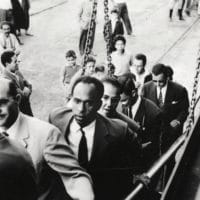-
Marx’s Ecology: Materialism and Nature
The Cosmonaut team inaugurates the ecology series by discussing John Bellamy Foster’s seminal book Marx’s Ecology on its twentieth anniversary.
-
The revolutionary life of Dr. Alan Berkman
I was dear friends with Dr. Alan Berkman and his physician wife and comrade Dr. Barbara Zeller. “They shared a deep moral commitment to make medical care available to all,” as Barbara Ehrenreich has written, “even if it took a revolution to achieve.”
-
Loaded: A Disarming History of the 2nd Amendment by Roxanne Dunbar-Ortiz
This is the Radical Reviewer taking a look at Loaded: A Disarming History of the Second Amendment by Roxanne Dunbar-Ortiz.
-
Liberalism At Large: The World according to the Economist
Zevin’s history of the Economist magazine opens up a rich angle from which to observe the nature and development of liberalism across 180 years, finds Dominic Alexander.
-
Marx’s Kapital For Beginners – Radical Reviewer
The Radical Reviewer taking a look at Das Kapital by Karl Marx.
-
World makers of the Black Atlantic
My sense, while reading this book, was of a twentieth century tradition now ripe to be reclaimed and revived, since, like Du Bois and his generation, we will surely need now to grasp the deep roots of our multiple crises if we are to be free of them and deliver a world to our children that is fit to inherit.
-
David Harvey against Revolution: the Bankruptcy of Academic “Marxism”
David Harvey is a university professor and a geographer who describes himself as a Marxist. His series of video lectures on Capital have been viewed by hundreds of thousands as a new generation of young people became interested in Marxism in the wake of the 2008 crisis. For these reasons, his recent statement that he is against the revolutionary overthrow of capitalism has logically caused a stir.
-
All of us began with Marta Harnecker
During an interview, then-Bolivia Vice President Álvaro García Linera and Spanish state parliamentarian Pablo Iglesias were exchanging ideas on classic texts and their own initiation into politics when the Spanish activist proclaimed: “All of us began with Marta Harnecker”.
-
Naked Imperialism by John Bellamy Foster – Review
Radical Reviewer reviewing the book Naked Imperialism: The U.S. Pursuit of Global Dominance by John Bellamy Foster.
-
The Monster Enters: COVID-19, Avian Flu and the Plagues of Capitalism – book review
Mike Davis’ The Monster Enters updates his earlier book on capitalism and pandemic disease to reflect on the current failure of the neoliberal state, finds Elaine Graham-Leigh
-
Is postcolonial capitalism a thing to itself? Reviewing Sanyal’s – Rethinking Capitalist Development
In all, Sanyal’s work is engaging, remarkable in its cross-disciplinarity, and fresh. Though its influence has been concentrated in Indian academia, I urge my colleagues elsewhere to give it a read. It will definitely make you think.
-
How to explain climate change? With comic books
If you are reading this, you probably already know a lot about climate change. But what images come to mind if I asked you to visualize climate change?
-
Coronavirus and the politics of disposability
COVID-19 is having a disproportionate effect among vulnerable populations. When the dust settles, as in all U.S. disasters, there will be a tale to tell of who mattered and who was sacrificed.
-
Talking Lenin with Tariq Ali – II
Raza Naeem sat down with one of the most influential leftists of our world today to discuss politics, history and his new book
-
Talking Lenin with Tariq Ali – I
Raza Naeem sat down with one of the most influential leftists of our world today to discuss politics, history and his 2017 book
-
Marx’s ‘Capital’ as a literary experience
Columbia University PhD candidate in English and Comparative Literature Tiana Reid finds that her students benefit from reading volume one of Karl Marx’s “Capital.” “There are so many literary wsys to read it, which I don’t think blunt the more radical political reading,” said Reid, who conducts research in Black Studies, Marxism and feminism.
-
Big banks call for Wall Street deregulation to “fight Coronavirus”
As Naomi Klein laid out in her bestseller “Shock Doctrine,” the wealthy elite use the confusion caused by economic and other disasters to quickly force through pro-free-market legislation.
-
Re-enchanting the world: Silvia Federici on feminism and the politics of the commons
In her recent volume Re-enchanting the World: Feminism and the Politics of the Commons (PM Press, 2019), Silvia Federici fruitfully brings together feminist reflections with discussions of the commons as a possible way of overcoming capitalism.
-
Dossier no. 26: Frantz Fanon: The brightness of metal
Frantz Fanon was born on the Caribbean island of Martinique on 25 July 1925. He died in the United States, from leukaemia, on 6 December 1961. He was thirty-six years old.
-
Show me the words that will reorder the World, or else keep silent
On the night before Red Books Day, on 21 February 2020, in the Indian state of Tamil Nadu, N. Sankaraiah–one of the thirty-two founders of the Communist Party of India (Marxist)–read from M. Sivalingam’s new translation into Tamil of the Communist Manifesto. Comrade Sankaraiah, age 98, said that he had first read the Manifesto at age 18. Over the years, he returns to the book because each time he reads it the brazing prose teaches him something new. And something that–sadly–seems ageless.




